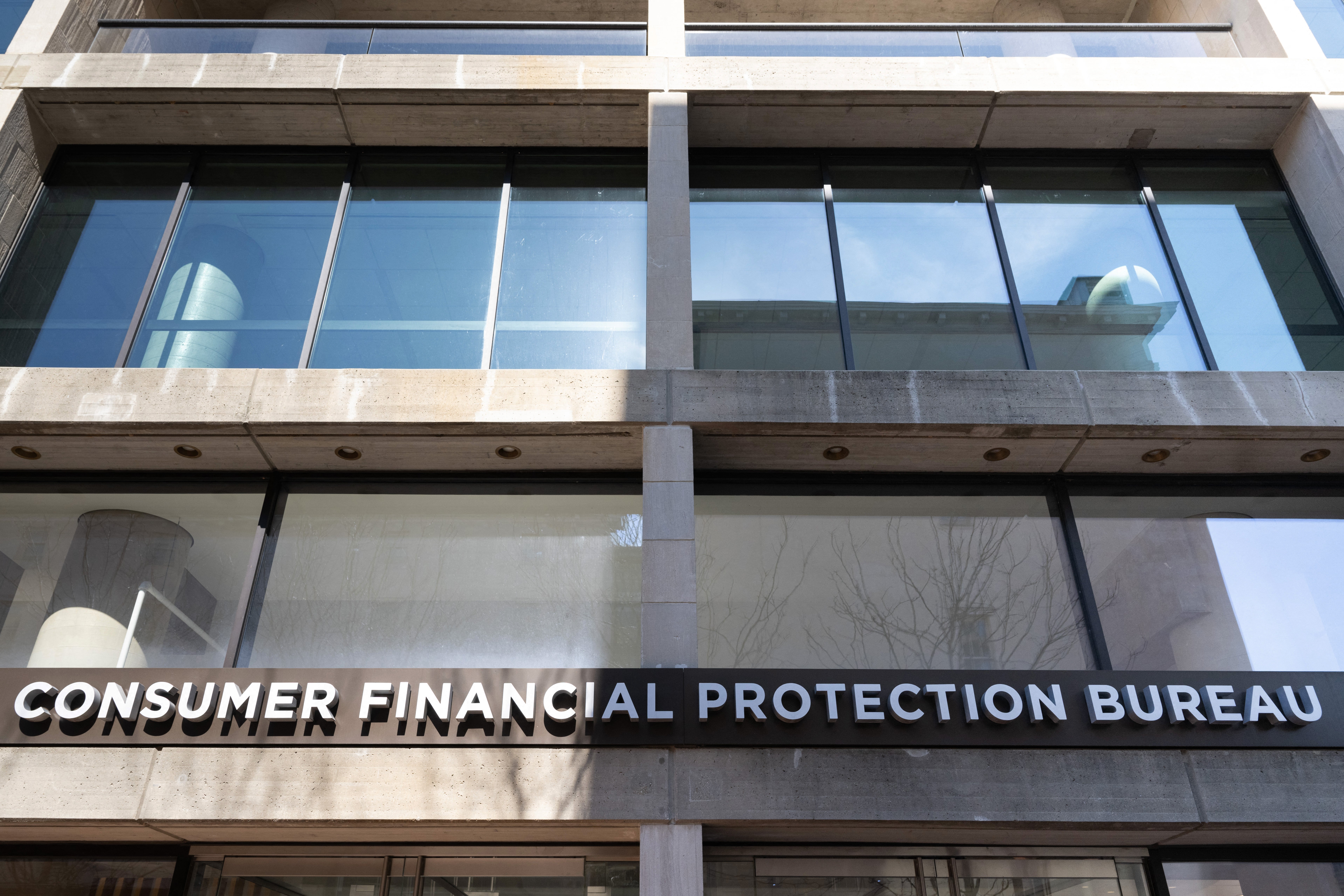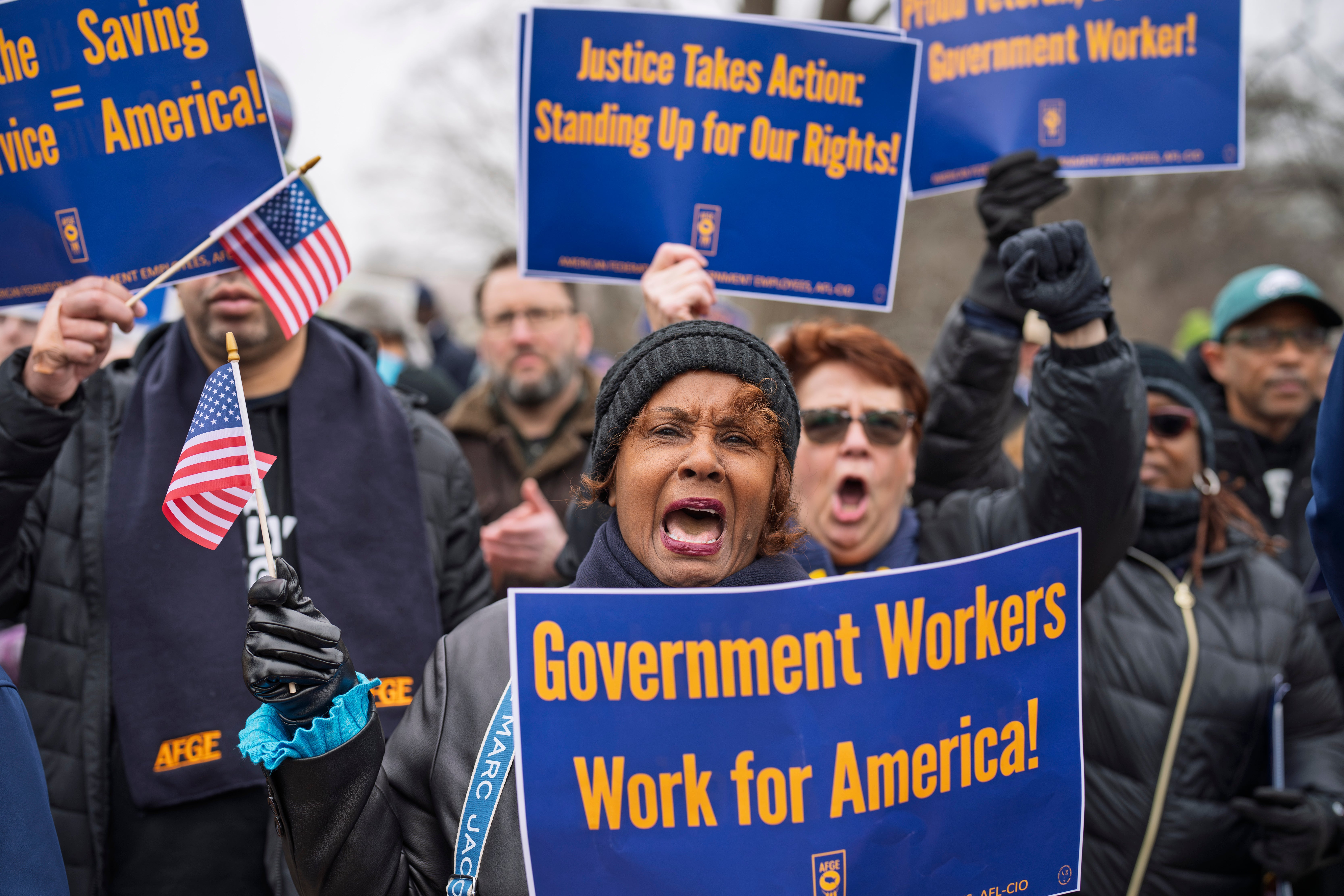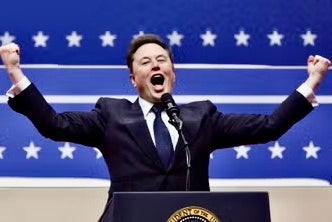Earlier this month, an X user posed a simple question to Elon Musk after the Donald Trump-appointed government slasher threatened the existence of the Consumer Financial Protection Bureau.
"What is the deal with the CFPB?" Scott G asked.
Musk had just posted "CFPB RIP," seemingly an indication that the bureau was on the billionaire’s hit list.
"I'm genuinely curious @elonmusk," Scott wrote. "I've used the CFPB after my bank was giving me the run around and I had a bunch of fraud charges that they wouldn't refund me, after telling me they found them as fraudulent. Within a week I had my money back. So explain to me how this doesn't benefit us as American citizens?"
He isn’t alone, the independent agency estimated its enforcement has resulted in $21 billion in compensation for Americans. Anyone who wasn't raked over the coals by an overdraft fee can thank the CFPB. Those who weren't paid interest on their Capital One supposed high yield savings account received payouts after the agency took the bank to court on their behalf. Anyone who might have fallen prey to predatory lending practices — the same that plunged the U.S. into the Great Recession and financial crisis of the early 2000's — can rest assured that the agency stopped banks from offering them in the first place.
But now, thanks to Trump, Musk, and interests within the banking industry, the armor provided to American consumers by the CFPB is being stripped away. The agency's new head and Project 2025 co-author, Russell Vought, issued a work stop order on Saturday, and said the agency would stop taking funding from the Federal Reserve. On Tuesday night, dozens of probationary workers at the bureau were terminated, according to the union.
Vought's decision comes as Musk's DOGE team reportedly tries to access CFPB personnel information and amid a removal of the agency's public-facing social media accounts, according to NBC News. The future of the agency — and of consumer protections from predatory and unscrupulous practices by banks, credit providers, and other lending services — remains unknown.

The Consumer Financial Protection Bureau
The CFPB was established in 2011 under the Dodd-Frank Wall Street Reform and Consumer Protection Act. Initially conceived by then-law professor Elizabeth Warren in 2007, former President Barack Obama ran with the idea and implemented into reforms put into place following the financial crisis of 2007-2008. The agency is an independent office within the Federal Reserve and funded by it.
The crisis and the subsequent Great Recession that fueled massive unemployment and saw millions of Americans facing home foreclosures was caused in part by predatory lending practices by banks offering subprime loans to borrowers who couldn't secure financing through more traditional means.
The CFPB was established to act as a regulatory watchdog and enforcement arm to prevent these practices. The agency both fined institutions that either took advantage of consumers or failed to deliver on services or protections they promised customers and advocated for more consumer-friendly banking and lending practices, like capping overdraft fees and credit card interest rates.
Since its inception, the agency has fined financial institutions and individuals more than $5 billion in civil penalties after they violate US law, according to the agency’s website.
In addition to the money its won back for consumers, the agency also acted as a source of information, providing more than 63 million users with answers to financial questions and collecting more than 6.8 million complaints by consumers who felt wronged by companies. Those complaints were then sent to the companies in question, but with the heft of the federal government behind them.
“Without strong oversight and enforcement, consumers are particularly vulnerable to predatory practices, hidden fees, and data privacy violations,” Delicia Hand, the senior director of digital marketplace policy at Consumer Reports, told USA Today. "Consumers face an increasingly complex financial marketplace dominated by AI, big tech, and new digital products, making the CFPB’s work more critical now than ever.”

Why kill the CFPB?
That's the heart of Scott G's question; why kill the agency tasked with protecting American consumers?
The fight against the existence of the CFPB is not new; banking and lending institutions have been opposed to it from the start, and their allies in the Republican Party has echoed their opposition in the years since.
Banks and lenders have sued the CFPB, alleging it regularly overreaches in its regulatory actions.
“In countless instances, the CFPB regularly strained—or flat out disregarded—the clear language of its legal authority to advance blatant political goals,” the Consumer Bankers Association said in a statement. “Using faulty data and facts to support its rulemakings, it failed to consider the true impact to consumers of its rules.”
For example; by reclassifying overdraft protections as credit products, some banking analysts have argued that the agency's actions will raise the cost of other banking services and potentially deprive customers of access to credit in the form of overdrafting for necessary purchases.
“The reality is that [capping late fees] will also increase the likelihood that banks raise other types of fees to make up for the lost revenue,” Matt Schulz, chief credit analyst at financial products comparison site LendingTree, told USA Today.
But the agency also has ideological opponents among Republican lawmakers. During Trump's first term, he installed Mick Mulvaney as the head of the CFPB. Mulvaney had previously called the agency a "joke" and stripped it of its ability to pursue discrimination cases against lenders.
On Monday, Trump attacked both the agency and its brainchild, Senator Warren, complaining that the agency was "set up to destroy people" and that the senator "used that as her little personal agency to go around and destroy people."

And then there's Musk, who has long insisted he wants to turn X into an "everything app" that includes fintech-like banking services that would have faced regulatory scrutiny from the CFPB.
“Musk does not want an active CFPB that will make sure that [X] is following the rules, that it is not ripping off consumers,” said Patrick Woodall, managing director of policy at Americans for Financial Reform, told Yahoo Finance.
Musk having a direct hand in dismantling an agency that might regulate him seems as though it would be a conflict of interest, and federal law prevents special government employees — including Musk — from working on projects in which they have direct financial interests.
White House Press Secretary Karoline Leavitt assured reporters who questioned her about Musk's conflict of interests that he would determine whether or not he was facing a conflict and would recuse himself if he felt it appropriate.
“If Elon Musk comes across a conflict of interest with the contracts and the funding that DOGE is overseeing, then Elon will excuse himself from those contracts,” she said. “And he has, again, abided by all applicable laws.”
What happens to the CFPB now?
Work at the agency is frozen per Vought's orders, and top officials are already abandoning ship.
On Tuesday, two top officials at the CFPB resigned after they were placed on administrative leave. Assistant Director for the Office of Enforcement Eric Halperin and Assistant Director for Supervision Policy, Lorelei Salas, have both exited the agency.
Deputy Director Zixta Martinez has also been placed on administrative leave, according to Politico.
Meanwhile, Warren and other Democratic lawmakers joined with some CFPB employees outside the bureau's now-closed headquarters to rally on Monday afternoon. Around 73 probationary employees were terminated on Tuesday.
Warren warned that without the agency, corporations will know there is no regulatory arm with the teeth to keep huge banks and financial institutions in line.
“If you keep the laws the same on the books, but you fire the cops, you’re going to have a lot more crime,” Warren told the Senate Banking Committee on Tuesday. “The cops, at least right at this moment, have been told at the CFPB to stand down. And I appreciate that we have state AGs who step in and often they partner up with the CFPB, but there is no one else for the giant banks who actually does what’s called bank examination [for consumer protection laws].”







